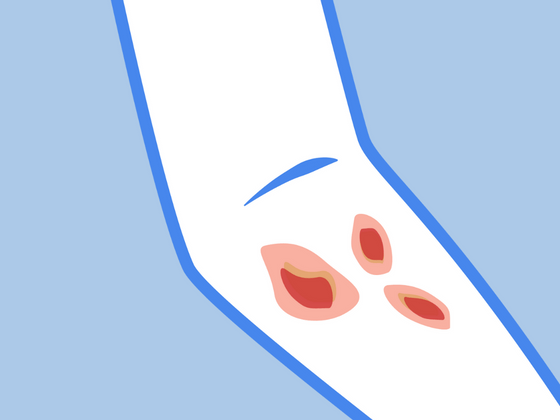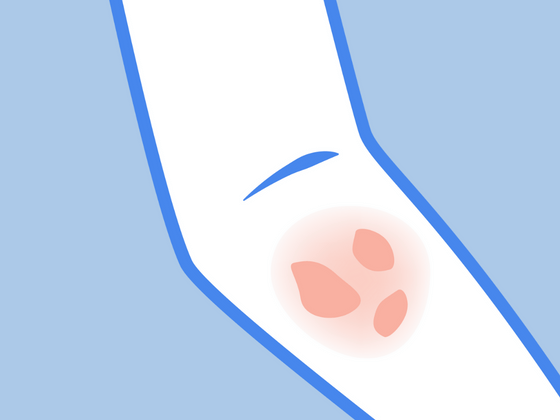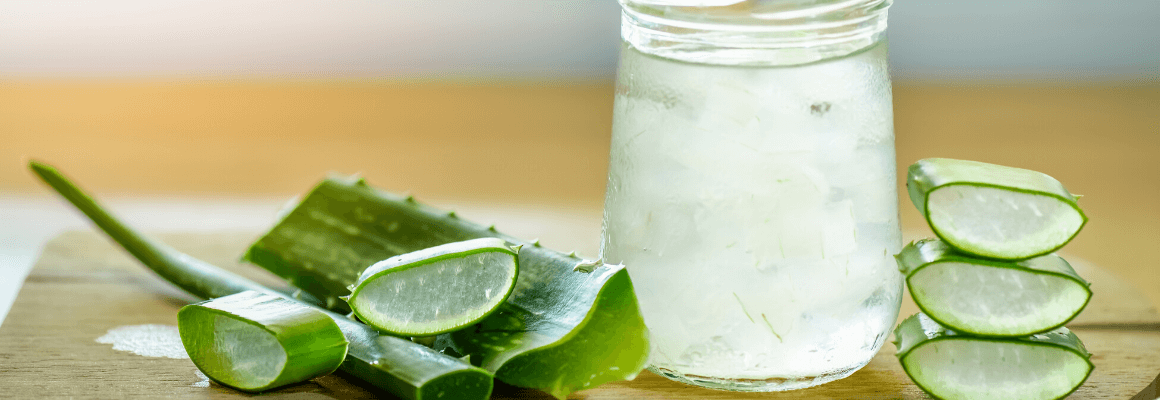Eczema is an inflammatory skin condition affecting over 30 million people in the United States alone. There are several different types of eczema, including atopic eczema, contact dermatitis, and discoid eczema. Due to a damaged skin barrier, eczema causes the skin to become dry, red, weeping, and extremely itchy. Typically, these patches of inflamed skin appear on the hands, the inside of the elbows, behind the knees, on the face, on wrists and forearms, and even on the back of the neck.
Let’s have a closer look at the symptoms of neck eczema and explore some natural neck eczema treatment options to help you find relief from this itchy skin disorder.
Please keep in mind that although what we discuss in this post can relieve eczema, we are in no way medical professionals. If you’re experiencing severe eczema symptoms like an infection, it is best to seek medical advice immediately.
What Does Eczema on Neck Look Like?
Neck eczema is characterized by patches of dry, red, scaly, and extremely itchy skin. Instead of the skin appearing healthy and smooth, a rash with small, fluid-filled bumps will develop. Scratching can cause the rash to worsen, potentially causing the skin to ooze a clear liquid, heightening the risk of infection. In addition, if scratching persists, the affected skin can thicken and develop a leathery texture. In some cases, white spots, scratch marks or scars may develop.
Symptoms of neck eczema can range from mild to severe. It’s possible that a person may go through periods where they experience intense flare-ups and other times where their symptoms are hardly noticeable.
Neck Eczema Causes
The exact cause of eczema is unknown, but it’s believed to be caused by genetic and environmental factors. As mentioned above, those suffering from eczema will likely go through periods where symptoms may be better or worse. A person usually experiences flare-ups when triggered by an irritating substance — many of them everyday, household products that are typically harmless.
Here are some common eczema triggers:
- Allergens such as dust mites, pollen, or pet fur
- Extreme changes in temperature, including low humidity and cold weather
- Irritants found in laundry detergents, soaps, perfumes, fragrances, and many beauty products
- Stress
- Sweat
- Certain fabrics, such as wool, polyester, and nylon
- Food allergies or sensitivities
To learn more about what triggers your eczema, check out our post: Eczema 102: What Triggers Eczema.
How to Treat Neck Eczema
Wet Wrap Therapy:
Studies show that wet wrap treatment reduces eczema symptoms by an average of 70% in 5 days. Gently wrap your neck with a damp layer of clothing and follow up with a dry layer over the top. For optimal results, first apply a natural moisturizer rich in emollients, as the damp layer will help these emollients permeate the skin for longer. Wet wraps are great for spot-treating problem areas and work best after a lukewarm bath.
Keep Skin Moisturized
To combat the drying effects of a damaged skin barrier, keeping eczema-prone skin properly hydrated is a crucial part of skincare. Therefore, we strongly advocate for natural creams and balms as they are less likely to exacerbate eczema symptoms due to chemicals and other harmful ingredients.
Prevent Scratching
While it can be tempting to scratch your itchy skin, we cannot stress enough how important it is to resist. This Organic Aloe Vera for Eczema Skin Soothing Spray does wonders in cooling itchy skin. Thanks to its non-greasy formula, it can be sprayed anywhere on the body and works well for any itchy skin condition. We also highly recommend you wear protective gloves, especially at night when you may be scratching unknowingly.
Eat Eczema-Friendly Foods
Certain foods, such as dairy, gluten, and citrus fruits, exacerbate eczema symptoms, while others, such as blueberries, kale, broccoli, and spinach, are known to help it. We suggest an eczema elimination diet if you’re unsure which foods trigger your eczema elimination diet. This involves stopping the consumption of certain foods from your diet for about a month and slowly incorporating these foods to determine which ones triggered a reaction.
References:
https://www.healthline.com/health/types-of-eczema#atopic-dermatitis
https://www.medicalnewstoday.com/articles/322435.php#atopic-dermatitis
https://www.webmd.com/skin-problems-and-treatments/eczema/ss/slideshow-eczema-overview
------------------

Bio: Laura is a contributor and content developer for The Eczema Company. She is in no way a medical professional. Her comments, suggestions, and reflections are not intended to replace any medical advice. Always seek the help of a medical professional before undertaking any diet or lifestyle changes.








